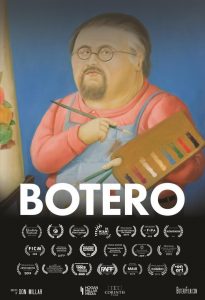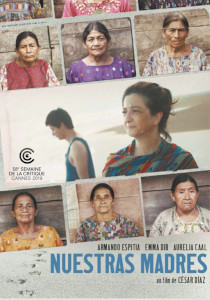Posted by Elena del Valle on May 18, 2020

Randy Pherson, author, How to Get the Right Diagnosis
Photo: Randy Pherson
A podcast interview with Randy Pherson, author, How to Get the Right Diagnosis, about the questions to ask your doctor if you don’t want to die is available in the Podcast Section of Hispanic Marketing and Public Relations, HispanicMPR.com.
Randy is chief executive officer of Globalytica, LLC; president, Pherson Associates, LLC; and a founding director of the non-profit Forum Foundation for Analytic Excellence. He teaches advanced analytic techniques and critical thinking skills to analysts in most of the 17 United States Intelligence Community agencies, in ten of the Fortune 100 companies, and in the United Kingdom, Italy, Norway, Denmark, Romania, Australia, Saudi Arabia, and Hong Kong.
He has authored, co-authored, or edited eleven books. He is best known for two books analysts encounter in their training: Structured Analytic Techniques for Intelligence Analysis and Critical Thinking for Strategic Intelligence.
Randy was a career Central Intelligence Agency of the United States (CIA) intelligence analyst and manager, last serving as National Intelligence Officer (NIO) for Latin America. He is a recipient of the 2000 Distinguished Intelligence Medal for his service as NIO and the CIA’s Distinguished Career Intelligence Medal also in 2000.
To listen to the interview, scroll down and click on the play button below or locate the “Podcast” section on the right hand side, then choose “HMPR Randy Pherson” or download the MP3 file to your iPod or MP3 player to listen on the go, in your car or at home from the RSS feed. Some software will not allow flash, which may be necessary for the podcast player. If that is your case, you will need to download the file to play it. To download it, click on the arrow of the recording you wish to copy and save it to disk. The podcast will remain listed in the May 2020 section of the podcast archive.
Posted by Elena del Valle on May 13, 2020

Botero poster
Photo: Corinth Films
An 84-minute long film showcasing the life and art of Fernando Botero, known internationally for his paintings and sculptures, was released by Corinth Films this month in several California, Pennsylvania, Minnesota, Louisiana and Colorado theaters. It has appeared in 13 film festivals. A trailer was not available.
It features interviews with the author, his adult children and other relatives as well as art curators, academics and historians. It is in Spanish, English, Italian, and French with English subtitles. The 2018 film was directed by Don Millar, written by Millar and Hart Snider. According to promotional materials, it includes original footage shot in 10 cities across China, Europe, New York and Colombia, with decades of family photos and archival video. His daughter, Lina Botero Zea, is listed as chief creative consultant and executive producer. This may account for the film’s access to the artist and his family as well as family homes and the artist’s studio in Monaco.
Millar is a Canadian film and television director based in Vancouver. His previous directorial credits include the climate change documentary Oil Slick, Full Force about rugby star Harry Jones, and the scripted narrative Off the Clock. Corinth Films has been distributing foreign and independent arthouse cinema in the United States and Canada since 1977.
Posted by Elena del Valle on May 6, 2020

Nuestras Madres poster
Photo, video: Outsider Pictures
Nuestras Madres (Our Mothers), a 78-minute documentary style drama in Spanish with English subtitles from Outsider Pictures had its virtual theater release at 15 locations in the United States last week. The somber film was Winner Camera D’or, Cannes Film Festival and Belgian Entry to 92nd Academy Awards. Scroll down to watch a trailer.
It features Mexican actor Armando Espitia as Ernesto, a young anthropologist working for the Forensic Foundation in Guatemala in 2018 during the trial of the soldiers who sparked the civil war. Charged with identifying the bodies of the missing he has a personal mission. Emma Dib is Cristina, his mother.
The account of an older woman from a small village convinces Ernesto he has a promising clue to find his father, who went missing during the war. Although his mother and his boss urge him to leave well enough alone he presses forward.
César Díaz, director, heard from his mother about his father, also a “disappeared” guerrilla fighter. He began the project as a documentary about military massacres during the Guatemalan civil war in the 1970-80s. After meeting women in the villages where the fighting took place he turned it into a feature drama. According to promotional materials, their testimonies, often full of violent tales, reveal the story of Guatemala’s history as one of the first Central Intelligence Agency “Black Operations.”
“In Guatemala, fathers are absent as a general rule,” Díaz said in a press release (he was not available for a podcast interview). “Many children born of rape think that their father just left at some point. I therefore wanted the mother to reveal her secret, because it is a way of accepting and living with the consequences of what has happened. In a post-dictatorship, post-war situation, I think there must be collective acceptance, which can then be followed by individual moving on. Nuestras Madres is, to my knowledge, the first film to deal with this subject head-on.”
According to press materials for the film only 1 percent of the disappeared have been identified after over 20 years of searches. The genocide trial in the film is a mixture of many trials taking place, as is the uncovering of mass graves and returning the bodies to the families.
The film was made with the support of Centre du Cinéma et de l’Audiovisuel de la Fédération Wallonie Bruxelles Proximus Eurimages. Born in Guatemala in 1978 Díaz studied in Mexico and Belgium. He attended a screenwriting workshop at La Fémis (Ecole Nationale Supérieure des Métiers de l’Image et du Son, the FEMIS Film School) in Paris, France. He has been a fiction and documentary film editor for more than a decade. He directed the short documentary films Semillas de Cenizas screened in twenty international film festivals. Nuestras Madres is his first feature film.
Beginning May 1, 2020 Our Mothers became available nationally via local art house cinemas for $12 per ticket, split equally with the local cinema to help support them during the pandemic. As of this writing the theaters are: in California: Los Angeles at Laemmle Theaters, Davis at Varsity Theater, Larkspur at The Lark, Santa Ana at The Frida Cinema, San Diego at Digital Gym Cinema; in Denver, Colorado at SIE Film Center; in Florida: Fort Lauderdale/Hollywood at Fort Lauderdale International Film Festival, in Miami at Tower, in Tampa at Tampa Theater; in Michigan: Detroit at Cinema Lamont, Ann Arbor at Michigan Theater; in St Louis, Missouri at Webster University Film Series; Albuquerque, New Mexico at The Guild Cinema; in Buffalo New York at North Park Theater; in Cleveland, Ohio at Cleveland Cinematheque; and in Philadelphia, Pennsylvania at Cinespeak.












